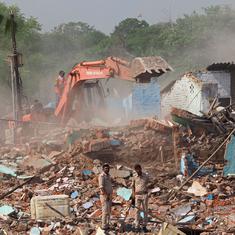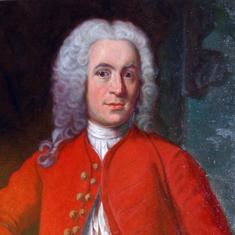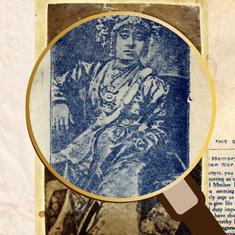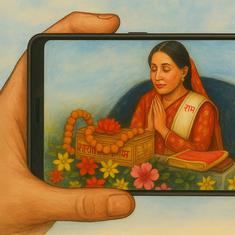Ten days had passed since the death, and the house felt haunted by Massud.
She relit the lamp and looked about her. Somewhere she had read of a place where those left behind by the dead wore masks for a certain number of days. It was done so that the spirit would not recognise them and be tempted to remain on earth. Encouraging the soul to begin its journey for the cities of the next world.
There were decisions no one could teach anyone to make. Nargis did not know what to do with the clothes she and Massud were wearing that morning, his blood on them now.
She recollected gestures and words, everyday things that had now been made monumental. On several occasions during the previous week, she had walked around the rooms wondering what might be the last object Massud had touched. What was the one thing his gaze landed on as he left the house that morning ten days ago, the last colour he thought of, his last ever sensation?
Laments were as old as verses of love, she knew. They were verses of love. For the departed who will never be met again, for the burned cities.
She wished the dead were somewhere specific, but they were nowhere. They were erased into memory. At twilight the words of St Augustine came to her.
And I enter the fields and spacious halls of memory, where are stored as treasures the countless images…
Late one morning, she answered the door to a man she assumed was an acquaintance of Massud’s, someone who had arrived at the house to offer her a few comforting words.
“I am here about your husband,” he said.
When she invited him in, it was done almost mechanically. Had he turned around and gone away, she would never have been able to describe him. Her mind was elsewhere. She had no other wish than to be alone, to somehow recover her stillness, to attempt to regain her balance. She unrolled the cane blinds in the arches to keep out the rising heat and sat down with him on the veranda.
“We have to discuss the matter of your husband’s death and the American man,” he said.
She looked at him, unable to understand what he meant. “How did you know my husband?” she asked, examining his face with care.
“I didn’t.”
Journalists and reporters had begun to knock on the door hours after the death but she had declined to speak to anyone. The man seemed to read her thoughts. “I am not a journalist.” She noticed the intensity of his gaze now. The eyes were too large for the face, educated in watching everything. “The American man is in custody, as I am sure you know,” he said. “But the American government has told us that he is a diplomat and therefore has immunity. They insist he must be released.”
Nargis had begun to stand up even before he had finished speaking. “I would like you to leave,” she said quietly, without looking in his direction.
“I can’t do that,” he said. “This matter has to be dealt with.”
Nargis shook her head to herself.
“The American government insists he is a diplomat – “

“I heard he was involved in espionage,” Nargis said, “that he is a spy and did not have permission to be in this city.”
“Please don’t interrupt me again,” the man told her with a pained expression on his face, clearly taken aback by the tone in which she had addressed him.
Nargis looked around, her eyes searching for Massud. One of the things Massud and the child Helen had loved were “book ghosts”. It was when an image printed on the reverse of a page showed through on the other side, the ink seeping across the fibres. A horse – disproportionately large – flying faintly through the sky above a city. A palace situated inside a mountain. A car lodged in a goddess’s crown.
She brought her mind back to the man, listening to him again.
“The American government insists he is a diplomat, and we have to release him.”
“I really don’t care.” She knew who this man was now. He was from the intelligence agency run by the military. A soldier-spy.
“Well,” he said. “You may not care but the people of Pakistan do. They are angry at what he has done, so we can’t just release him. They will say Pakistan does what the West tells it to. And – “
“As I said, I don’t care.”
Nargis was feeling all sense of comportment slipping away from her, and the man exhaled impatiently. There was a new firmness in the voice when he did speak again:
“You have to publicly forgive him. You have to declare that you want him to be free.”
Nargis tried to place her thoughts elsewhere, on to a more bearable reality. She could think of nothing.
“You are the dead man’s next of kin, so the forgiveness has to come from you. The last blood relative was a sister, but she left Pakistan and is now deceased.”
“What about the families of the boys on the motorcycle?”
“Those two-bit thieves.”
There was open mockery in the tone of these words, and Nargis felt a surge of anger inside her, a sudden intensity after the sensationless days. The idea was that the boys would have to have been flawlessly virtuous for their murders to be unjust.
“We are approaching their families too,” he said. “They too will announce that they have no wish to press charges. You will all appear in court and sign various papers.”
“I have no intention of doing any of that,” Nargis heard herself say.
Perhaps the American government would reward Pakistan’s military and government for the freedom of the killer. Various deals would have been worked out.
“Let him go,” she said. “I have no wish to get involved.”
“But you are involved.” He sat forward and looked at her through the prominent veins in his eyes. “You have to remember that the world did not end the day your husband died. Nor did it begin that day. Many older facts and relationships have to be taken into consideration.”
Massud had once said that the Pakistani military was a curse. It had been eating Pakistan’s children for decades.
“Is he a diplomat?”
“I will not repeat what I have already told you.” Though controlled, his hostility was visible as he pointed to her chair and said, “Sit down and listen to me. As an educated person, you must see that – “
“I would like you to leave,” she said, fully resolved to put an end to the exchange. It was scarcely believable to her that she had allowed it to continue for so long. There had been no words of sympathy, nor had he introduced himself. He was in civilian clothes but his rank must be a major – she could tell from his bearing and manner. The families of the two young men on the motorcycle would have been visited by someone lower in rank, a lieutenant or a subedar.
Despite what she had said he remained in his chair, just as she herself was still standing, regardless of his curt demand.
“You obviously know a good deal about us,” she said. “Do you know about my husband’s brother?”
There was an imperceptible shrug; he managed to restrain it just in time but Nargis registered it. “He was a journalist, he died some time ago.”
“Twenty years and eight months ago. But who’s counting,” she said, smiling at him with rage. “He was a journalist and was found by the roadside. Tortured to death soon after he began investigating a story about the military-intelligence agency.”
“I would strongly advise you not to repeat that in my presence.”
“What about in your absence?”
She had seen paintings of St Anthony bringing a dead man to life, so he could reveal the name of his murderer.
She could hear her agitated breath, feel the stiff smile on her face. There was a tearfulness, held back. “Why don’t you have me killed?” she said in as clear a voice as she was capable. “Massud would have no next of kin then.”
They stared at each other without saying anything.
Excerpted with permission from The Golden Legend, Nadeem Aslam, Hamish Hamilton.










